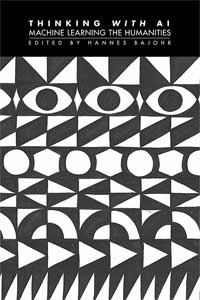I recently watched a February 2025 interview on the BBC’s Media Show with Mehdi Hasan, the journalist behind Zeteo. He’s using paid subscriptions to Substack to build a left-leaning media company (complete with branded hoodies) as an alternative to legacy outlets such as the BBC. Naomi Klein, Owen Jones and Cynthia Nixon are already involved in delivering content.
I'm not uncritical of Substack, nor unaware of how it works. Still, at first glance, I could see the appeal. OK, Zeteo is largely comment and opinion-driven - because, as we know, these platforms require a constant stream of (ideally clippable) content to keep engagement high. And it’s much easier to come up with that on a regular basis if you're offering 'hot takes'. Yes, Gary Lineker's The Rest Is ... podcast empire, we're looking at you. And, indeed, a lot of the material on Zeteo does come across as filmed podcasts and Zoom calls. Podcasts and Zoom calls with high production values maybe, but podcasts and Zoom calls nonetheless.
However, I can understand why liberal-left journalists might be drawn to Substack, and to Zeteo - especially given what's going on at the likes of the BBC, Washington Post and Guardian right now. (The Observer’s John Naughton can’t go a week without recommending something from a Substack newsletter in his Networker tech column - usually by a man. What's that about?) So I got intrigued.
But before even more of us rush out to join Substack, let me say that lasted all of about five minutes.
Then I came across this piece from a few days ago on America 2.0, which delves deeper into the politics of Substack. It highlights how the platform isn’t just a neutral tool for independent writing and journalism - it’s also a key pillar of what Marc Andressen, Balaji Srinivasan and other advocates of the 'Network State' call the 'parallel establishment'.
At the inaugural Network State conference in Amsterdam in October 2023, Srinivasan laid out a vision in which Silicon Valley elites replace existing legacy institutions with their own alternatives:
So for example, at the top there's San Francisco and we're replacing San Francisco with things outside it like Cul-de-Sac in Arizona and Prospera in South America and Cabin, which is in Texas, but also around the world ....
We're gonna take out Harvard, and we have parallel education that's Replit, that Synthesis ... but it's also AI tutoring, the Thiel Fellowship, Emergent Ventures ....
We replace media with parallel media. It’s Twitter and X, it’s Substack. ... This concept of the parallel establishment, if you take up all of these new institutional replacements ... that’s a parallel establishment.
The goal? Pretty much what we're seeing unfold in the US right now. Disrupt and dismantle democratic societies and their institutions - governments, government departments, federal agencies, universities, the courts, the press, even cities - and replace them with decentralized, corporate-backed alternatives that function as competing fiefdoms. Seen in this context, Substack isn’t just an outlet for independent writing and journalism; it’s part of a broader push to erode traditional public institutions in favor of privatized, libertarian tech enclaves.
So, just in case anyone is tempted, while Substack and Zeteo may seem like promising alternatives to legacy media, you know... best keep in mind how they fit into the bigger picture.
 Friday, May 2, 2025 at 10:40AM
Friday, May 2, 2025 at 10:40AM  Gary Hall | Comments Off |
Gary Hall | Comments Off | 







